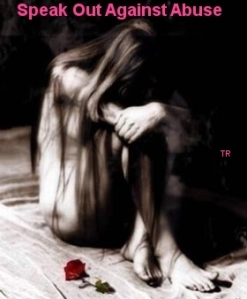
“Many survivors of abuse find that especially in the early days after leaving an abusive relationship they suffer from increased anxiety, depression and sometimes also panic attacks. The combination of depression and anxiety really can be quite overwhelming and frightening, and especially if we don’t understand what is happening with us and our bodies, we can feel as though we are going crazy or may fear that we are somehow physically ill.
Anxiety is something we are all familiar with and which everyone experiences at some point in their lives. We might be anxious about a friend or family member who is ill and needs an operation, or anxious about an exam or driving test. Generally anxiety is the body’s response to a potentially threatening situation, it is like a forewarning or alarm system in which the mind at an often subconscious level recognises potential danger or need for action and prepares the body accordingly, pumping oxygen into the bloodstream and heightening our senses. Anxiety becomes a problem when it is inappropriate, ie when there is nothing to be frightened of. We all have an anxiety threshold and it is when this threshold is much lower than appropriate that anxiety becomes a debilitating and frustrating problem – we feel frightened and uptight all the time or much of the time even when there is no outward obvious reason for it.
A panic attack is a result of anxiety, but anxiety doesn’t have to result in a panic attack. Panic in itself is a normal physical response to danger, like the ‘fight or flight’ response, and as such can serve a useful purpose, eg if we are crossing a busy road and see a car coming at us at speed we ‘panic’ and run. That is a normal healthy response and once the danger is over, the panic subsides. The problem with panic attacks is that they can be unrelated to the reality of what is happening to us at that moment in time, and as such is often described as a fear of fear itself, rather than an appropriate response to imminent danger. We could have a panic attack in the middle of shopping or dropping a child off at school, and such panic attacks become debilitating as we can then develop anxiety around doing normal things, the additional anxiety over possibly having an panic attack stresses our body further and the risk of actually having a panic attack increases.
Sometimes a panic attack can be triggered by events, noises, sights, smells or thought of previous trauma, and we react with panic as though we were still faced with the danger as it was at the time.
The symptoms of a panic attack are:
- fast, pounding heartbeat
- difficulty catching your breath
- chest pain
- flushing and sweating
- feeling sick
- trembling
- dizziness
- dry mouth
- needing to go to the toilet
- feeling faint more












